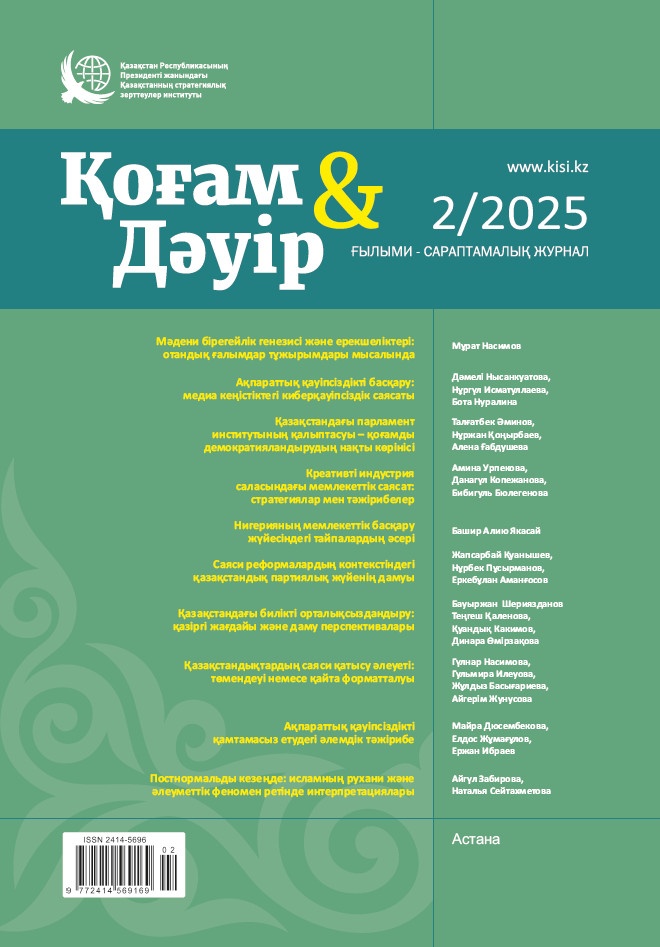Abstract
The contemporary era is defined by philosophers, sociologists, and futurologists as a post-normal time. This paper, being a part of a broader study, examines the impact of post-normal times on religious institutions, focusing specifically on Islam in Kazakhstan. Through qualitative interviews, a study was undertaken to identify both general and particular characteristics of the institutionalization of Islam over the past decade. The main subject of interviews was the characteristics of the social, political, and legal regulation of religious life in the region by governmental entities. The analysis reveals that the Islamic education landscape is in a state of continual change and evolution and predominantly emphasizes ritualistic practices, while the ideological dimensions, philosophical considerations, and legal and economic characteristics are omitted by Islamic educational institutions. Our data indicate the complex nature of confessional relations within Islam, which is challenging the currently cohesive community of Muslims, thereby necessitating religious management to avert a schism. Finally, we argue that it is essential for the state to continue monitoring the actions of religious organizations, particularly given the growing importance of social networks.


